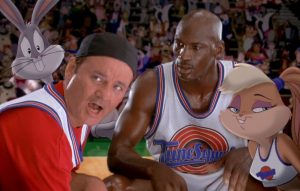At the end of last month, the world watched as one of the most prestigious events in cinema unfolded in the south of France. The 68th Cannes Film Festival was in full swing, with all the stars, glamour, and pomp it entails. Often considered the biggest name in high-profile art film, Cannes is one of the most well-known and respected film festivals in the world, and its top prize—the Palme d’Or—is one of the most sought-after awards in the business. There’s been a lot said about this year’s festival, which many critics agreed featured an unusually strong set of films. Here’s the rundown:
The Palme d’Or went to the Turkish film Winter Sleep, about an actor who moves to the countryside and maintains a rocky faux-paternal relationship with his neighbors. The film’s director, Nuri Bilge Ceylan, has long been a respected figure in the art cinema world, and has won prizes at Cannes before, but this is his first Palme victory. Some critics found the film a bit inaccessible (it’s three hours long with little action and plenty of dense dialogue), but many found it to be richly detailed and highly ambitious, and were happy to see Ceylan finally win the big prize. This is the second Turkish film to win the Palme, the first being Yılmaz Güney’s Yol in 1982.
The Grand Prix award (a.k.a. “Second Place”) went to lesser-known Italian director Alice Rohrwacher for The Wonders, a sweet film about a beekeeping family in rural Italy. Because of its light subject matter and the director’s inexperience (The Wonders is only her second film), some questioned whether this film quite warranted a spot in Cannes’ main competition – there were certainly bigger names and weightier topics in play. However, many critics stuck by this little indie-ish film, and the competition Jury seemed to like it, too.
Two films received the honorable mention of the Jury Prize: Canadian wunderkind Xavier Dolan’s Mommy and French master Jean-Luc Godard’s Goodbye to Language – the films of the youngest and oldest directors in competition. Dolan, who has just made his fifth film at the ripe young age of 25, has been taking the film world by storm with his highly stylized, youthful films, and some say Mommy, which centers on a mother, her unruly child, and a mysterious neighbor, is his best and most shocking. Jean-Luc Godard, a leader of the French New Wave of the 60s, has been pumping out increasingly obtuse films for the last few decades. Goodbye to Language, notably shot in 3D, is said to be one of his most accessible of late (whatever that’s worth), containing an odd mixture of philosophical inquiry, visual inventiveness, and poop jokes. Even though he received an award, Godard, rather predictably, did not attend the festival to pick it up.
American director Bennett Miller (of Capote and Moneyball fame) took home the Best Director prize for his dark sports drama Foxcatcher. Focusing on the story of the twisted relationship between wrestlers Mark and Dave Schultz and eccentric millionaire John du Pont, Foxcatcher stars the unlikely ensemble of Channing Tatum, Mark Ruffalo, and a nearly unrecognizable Steve Carell as du Pont, all of whom received a great deal of praise. Despite a small body of work, Bennett Miller already has a reputation for his cool, precise directorial style and his ability to pull outstanding performances out of his actors, and Foxcatcher may be his best work yet. Expect to hear about this one again when the Oscars roll around.
Julianne Moore took home the Best Actress award for her role in David Cronenberg’s dark Hollywood satire Maps to the Stars. Moore’s role in the film, which focuses on the unhealthy dynamics of a showbiz family and their associates, is that of a famous but aging actress who is desperate to maintain her glory, lest she be outshone by her Hollywood legend mother. With this win, Moore joins a small club of actors who have won acting prizes at all three of the major European film festivals – Cannes, Venice, and Berlin. She has previously won at Venice for Far From Heaven and at Berlin for The Hours.
Taking home the Best Actor prize this year is the British Timothy Spall, for Mike Leigh’s biopic Mr. Turner. Spall has long been known as a great character actor (you might recognize him as Peter Pettigrew), but he got a rare shot here in a leading role, as the great British painter J.M.W. Turner, and by all accounts he shows he has the talent for it. Mike Leigh’s long been known for his way with actors, foregoing scripts in favor of heavy improvisation, and it worked for Mr. Turner, which was an early high point in the festival.
Russian director Andrey Zvyagintsev took home the Best Screenplay award, along with co-writer Oleg Negin, for his political fourth film Leviathan. This film, which follows a mechanic as he resists a corrupt mayor who wants his land, was one of the last films to screen in the festival and was considered a strong contender for the Palme. Curiously, Russian authorities are apparently not pleased with Leviathan’s seemingly anti-Putin slant, which sounds a lot like last year’s Best Screenplay winner A Touch of Sin, which has still not been cleared for release in its native China.
One of the stranger success stories of the festival this year was that of none other than Kristen Stewart. Though she didn’t win any awards, the former Twilight star got some of the best notices of the festival and certainly the best of her career for her role in Olivier Assayas’ The Clouds of Sils Maria. That she managed to outshine her co-stars Chloë Grace Moretz and Juliette Binoche (!) is no small feat, and a promising sign she may live up to her early potential.
Marion Cotillard also, predictably, drew praise for her role in Two Days, One Night, the new film from the Belgian two-time Palme winning Dardenne Brothers, but of course did not manage to take home Best Actress. This marks the third year in a row that Cotillard has looked like a major contender for the award (last year for The Immigrant and two years ago for Rust and Bone) and has come up short. You’ll get it one day, Marion.
Japanese director Naomi Kawase very publicly declared her entry to Cannes, the tropical island coming-of-age tale Still the Water, to be her masterpiece, and said she was shooting for nothing less than the Palme. The film opened to positive but somewhat underwhelmed reviews, and Kawase was specifically invited to the awards ceremony only to receive nothing. Ouch.
Not all reviews were good, however. Ryan Gosling’s directorial debut Lost River (previously known as How to Catch a Monster) screened in Cannes’ sidebar selection, Un Certain Regard, and was singled out for roasting. One of the most anticipated films going into the festival, most critics found Gosling’s nightmarish, stylized fantasy too derivative and willfully strange to justify the hype, though the film did have a small base of supporters. Maybe Gosling should stay in front of the camera after all.
Another unfortunate bomb was Michel Hazanavicius’ new film The Search. Coming off his Oscar wins for The Artist, Hazanavicius tried his hand at more serious subject matter, turning his eye toward war-torn Chechnya. Though most could recognize that its heart in in the right place, reviews for The Search found it hard to laud good intentions over the film’s heavy-handed, emotionally manipulative approach to its subject matter, and the film quickly became one of the most widely-panned of the festival.
And…that’s it! We’ll be hearing more about these films later this year, hopefully, or maybe next year. The festival circuit will be quiet until August, when Telluride and Venice start, and we’ll see what other movies these will have to compete with. For now, though, you can plan to see How to Train Your Dragon 2, which screened out of competition at Cannes, which makes it artsy, right?
Photo: IMDB






